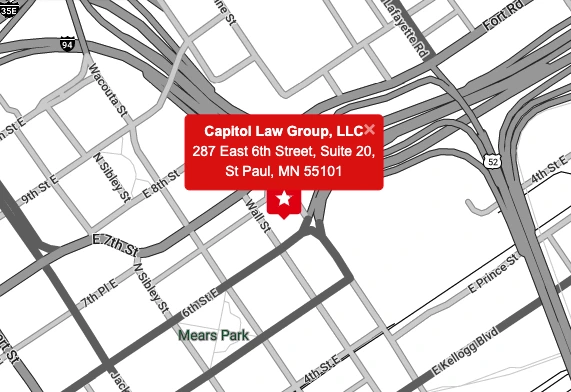A St. Paul Drug Crimes Attorney Talks About Possession Charges

Harsh drug possession penalties might be one of the last vestiges of the 1980s war on drugs, which probably began with the heartbreaking 1986 drug overdose death of Len Bias. Most observers said the University of Maryland standout was as good as Michael Jordan, or maybe even better.
That year, Bias was the first-round draft pick of the Boston Celtics. If he had joined a club which already had five Hall of Famers (Bill Walton, Robert Parrish, Kevin McHale, Dennis Johnson, and Larry Bird), there’s no telling how good those teams might have been.
According to witnesses, immediately after Bias did one line of cocaine at a party, he slumped over and died. In response, and since 1986 was an election year, Congress passed incredibly tough drug possession laws.
Now, attitudes have changed. During his eight years in office, former President Barack Obama pardoned over 3,000 individuals, many of who received excessive drug possession sentences. Nevertheless, these laws are still on the books, at least for the most part. So, a St. Paul drug crimes attorney must aggressively defend these charges in court.
Procedural Defenses
These defenses are often very effective in drug possession cases. Police officers cannot turn back the clock and correct procedural mistakes they made earlier in the process. And, the exclusionary rule is quite clear. If the evidence was illegally obtained, it is inadmissible at trial. No evidence means no case.
Physical evidence, like drugs, often involves an informer’s tip. Someone sees something and informs police officers. To evaluate the reliability of these tips, courts look at several factors, such as:
- Source: Paid police informants, whether they receive money or favorable treatment, are almost per se unreliable. On the opposite end of the spectrum, other officers are almost per se reliable. Everything else, such as a CrimeStoppers tip, is somewhere in the middle.
- Time: These tips have very brief shelf lives. If the information is more than a few minutes old, it is probably stale.
- Specificity: A tip like “there are drugs in a dark SUV” could refer to about a third of the vehicles in Ramsey County. “Black SUV with Minnesota plates southbound on First Street” is much more specific and therefore much more reliable.
Ramsey County prosecutors cannot work backward. Even if the tip lead to an arrest, it could still be unreliable. The ends do not justify the means.
Failure to properly Mirandaize the defendant is another possible procedural defense. Police officers must give defendants their Miranda rights, such as the right to remain silent, when custodial interrogation begins. Generally, people are in “custody” when they do not feel free to leave. That could be as soon as flashing lights appear in the rearview mirror. Additionally, “interrogation” is not limited to asking drug-related questions. Experienced officers know how to extract information without asking questions.
Finally, if officers do not have search warrants, and they usually don’t have them in drug possession cases, a search warrant exception must apply. Some common ones are:
- Exigent Circumstances: This exception is also known as the safety sweep exception. If officers believe people are in trouble, perhaps because of a reported gas leak, they may enter the premises without a warrant, look around to make sure everyone is okay, and seize any contraband they see in plain view.
- Plain View: Officers may seize any drugs or other contraband they see in plain view. Partial plain view situations, such as part of a baggie sticking out from under a seat, are in a grey area.
- Consent: Owners may allow police officers to search their homes, vehicles, and other property. Consent is an affirmative act, and the owner must understand all the consequences. An apparent owner, such as a roommate whose name is not on the lease, might be able to consent in some situations.
Frequently, officers bully owners to obtain consent (e.g. “if you don’t let me in I’ll get a warrant”). That’s usually an empty threat. If officers had probable cause to enter, they wouldn’t ask for consent.
Substantive Defenses
Officers always testify that the substance “field tested” positive for marijuana, cocaine, or whatever. Frequently, this unscientific “field test” is not much more than a visual inspection. In late 2018, a Florida man was arrested and charged with trafficking heroin. The heroin turned out to be Tide detergent. So, a St. Paul drug crimes attorney must always demand a scientific re-test.
Here in Minnesota, this issue often comes up in marijuana possession cases. Hemp is legal, but marijuana is illegal. If a St. Paul drug crimes lawyer has hemp in one hand and marijuana in the other, it’s impossible to tell the difference. Unless the state runs an expensive THC content test, prosecutors usually cannot establish, beyond a reasonable doubt, that the substance is illegal.
How St. Paul Drug Crimes Attorneys Challenge the Elements of “Possession”
In this context, “possession” and “proximity” are not synonymous. In addition to proximity, Ramsey County prosecutors must establish the other two elements of possession, which are:
- Knowledge and
- Control
So, a defendant could literally be sitting on a stash of drugs and not legally possess it. Prosecutors must establish possession beyond a reasonable doubt, which is the highest standard of evidence in the law.
Contact a Tenacious Lawyer
Drug possession charges are serious and complex. For a free consultation with an experienced St. Paul drug crimes attorney, contact Capitol City Law Group, LLC. Go online now, call us at 651-705-8580, or stop by 287 6th St E, Suite 20, St Paul, MN 55101.




